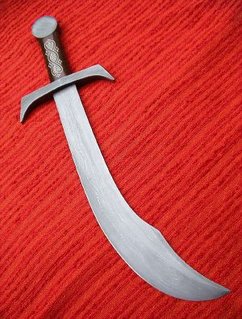Now that we have the whole skill maze, we can start making classes, can't we? Then let's go crazy! (This chapter won't be at the final exam, feel free to skim through it)
How it works :
Name of the class : 3 primary skills
6 secondary skills
Warrior : Slashing, Dodge, Blunt
Mounting, Piercing, Bone Crafting, Leather Working, Unarmed, Throwing
Fighter : Piercing, Blocking, Dodge
Slashing, Blunt, Archery, Acrobatics, Smithing, First Aid
Paladin : Slashing, Defence, Healing
Blunt, Blocking, Protection, Leadership, Smithing, Mounting
Ranger : Archery, Tracking, Dodge
Slashing, Acrobatics, Leather Working, Sneak, Trapping, Cooking
Thief : Sneak, Archery, Pick Locks
Piercing, Dodge, Acrobatics, Trapping, Poisons, Illusionism
Assassin : Sneak, Poisons, Throwing
Trapping, Alchemy, Acrobatics, Tracking, Dodge, Blunt
Necromancer : Necromancy, Demonology, Curses
Poisons, Sorcery, Arcane Lore, Bone Crafting, Alchemy, Illusionism
Mage : Magery, Elementalism, Arcane Lore
Sorcery, Healing, Defence, Protection, Alchemy, Herbalism
Sorcerer : Sorcery, Illusionism, Elementalism
Alchemy, Magery, Arcane Lore, Demonology, Curses, Herbalism
Healer : Healing, Defence, Protection
First Aid, Magery, Alchemy, Chemistry, Biology, Herbalism
Priest : Healing, Blunt, First Aid
Protection, Dodge, Tailoring, Leadership, Music, Defence
Armorer : Smithing, Leather Working, Tailoring
Blunt, Mining, Engineering, Stone Carving, Wood Crafting, Siege Weapons
Elementalist : Elementalism, Arcane Lore, Illusionism
Magery, Sorcery, Enchanting, Holy, Alchemy, Necromancy
Master of Golems : Golem Crafting, Alchemy, Stone Carving
Engineering, Smithing, Arcane Lore, Magery, Enchanting, Jewel Crafting
Golem Crafter : Golem Crafting, Engineering, Stone Carving
Wood Crafting, Alchemy, Bone Crafting, Chemistry, Mining, Demolition
Scholar : Teaching, Arcane Lore, Biology
Tactics, Music, Scroll Writing, Chemistry, Engineering, Arts
Tactician : Tactics, Leadership, Siege Weapons
Tracking, Teaching, Demolition, Engineering, Mounting, Archery
Tamer : Animal Taming, Music, Leadership
Protection, Healing, Herbalism, Biology, Cooking, First Aid
Artist : Arts, Music, Illusionism
Wood Crafting, Stone Carving, Dancing, Tailoring, Teaching, Jewel Crafting
Sword Dancer : Slashing, Dancing, Acrobatics
Piercing, Dodge, Sneak, Blocking, Mounting, Arts
Farmer : Herbalism, Piercing, Animal Taming
Mounting, Tracking, Wood Crafting, Cooking, Biology, Music
Bard : Music, Arts, Dancing
Leadership, Dodge, Acrobatics, Protection, Healing, Illusionism
Clown : Acrobatics, Trapping, Throwing
Sneak, Dodge, Blunt, Dancing, Mounting, Music
Whew, that was fun. Any more to suggest? As you can see, it's quite easy to create a class with this system.



